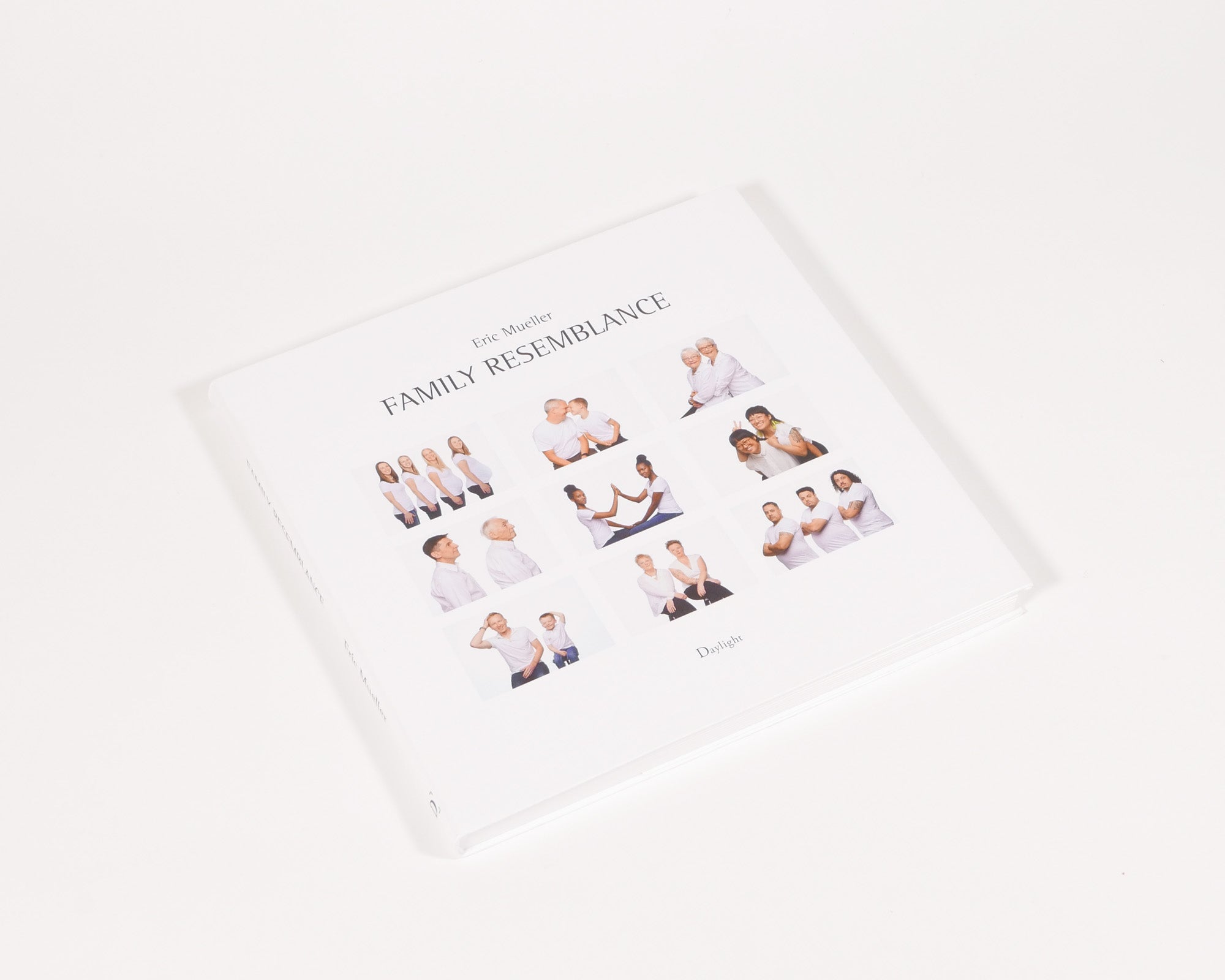
Eric Mueller and his mother
When I was forty-five, I received a photograph of my birth mother in the mail—the first time I ever saw someone who looked like me. Seeing myself in another person’s face was a lightning bolt so powerful it divided my life into everything that happened before that moment from everything that happened after.
It’s a basic human desire to seek recognition by others, and physical resemblance is often the first form of recognition we experience. You’ll see a new parent flush with pleasure when that physical resemblance is commented upon: “He looks just like you” or “She has her mother’s eyes.”


As an adopted person—who grew up without any connections to my biological relatives—I’d always wondered what it was like to have a visual bond with someone else: something that clearly marked you as members of the same family. Did it make you love each other more? Did it link you together in a way that nothing else could?
"Although I resemble some other members of my family, my likeness to my mother attracts the most attention. People say we look “exactly alike”. They stop us on the street, in the airport, approach our table in a restaurant to express their amazement. By my mid-twenties I had grown accustomed to the intrusions. Now we easily pause our conversations and share our connection with others."
I don’t have kids, so I had to wait to experience family resemblance until I was ready to search for my birth mother, which is when I received that photo. It’s nearly impossible to describe the feeling of first seeing someone who looked like me: a mixture of relief, wonder, and joy, but also sadness for the loss of growing up without a biological family.
I don’t have kids, so I had to wait to experience family resemblance until I was ready to search for my birth mother, which is when I received that photo. It’s nearly impossible to describe the feeling of first seeing someone who looked like me: a mixture of relief, wonder, and joy, but also sadness for the loss of growing up without a biological family.


"When my daughter Mackenzie was about two months old we introduced her to a friend who took one look at her and said, “Oh my gosh! It’s Jim in a dress!”
I’ve always been told I look like my Mother. No seventeen year old boy wants to hear that. I wanted to hear that I looked like my Dad. Now, as an adult with a daughter who looks like me-which means she looks like my mother-it’s a source of joy. My mother passed away in 2008, but when I look at Mackenzie, I feel like in some way my mother is still with me."
As a way of understanding my experience, I started this photo project to document people who are genetically related and bear a strong resemblance to each other. Over the course of three years, I photographed around 700 people and asked them about what family—and family resemblance—means. The participants’ photos and answers were so varied and powerful that they gave me a deeper understanding of resemblance, and my own place in the world.
I’ve always been told I look like my Mother. No seventeen year old boy wants to hear that. I wanted to hear that I looked like my Dad. Now, as an adult with a daughter who looks like me-which means she looks like my mother-it’s a source of joy. My mother passed away in 2008, but when I look at Mackenzie, I feel like in some way my mother is still with me."
As a way of understanding my experience, I started this photo project to document people who are genetically related and bear a strong resemblance to each other. Over the course of three years, I photographed around 700 people and asked them about what family—and family resemblance—means. The participants’ photos and answers were so varied and powerful that they gave me a deeper understanding of resemblance, and my own place in the world.

“I have almost every single one of my dad’s features, but I believe I have my mom’s smile. Resembling them makes me feel like I belong in this world.”

"Resemblance reminds us that we’re part of something bigger than ourselves; that we’re made up of pieces of people who came before us, whether it’s a nose or a laugh, a curve of the eyebrow or a facility with numbers. It reminds us that we’re not self-made, or immortal, or alone."

"When I look at my son and see how much we look alike, I have a sense of kinship, belonging, and longevity."

The six of us came to Minnesota in 1979, in the first wave of Southeast Asian refugees. It felt like there was no one here who looked like us, so our resemblance to each other was heightened in comparison to Minnesotans at that time. When there’s only six of you on Mars, family means everything.



